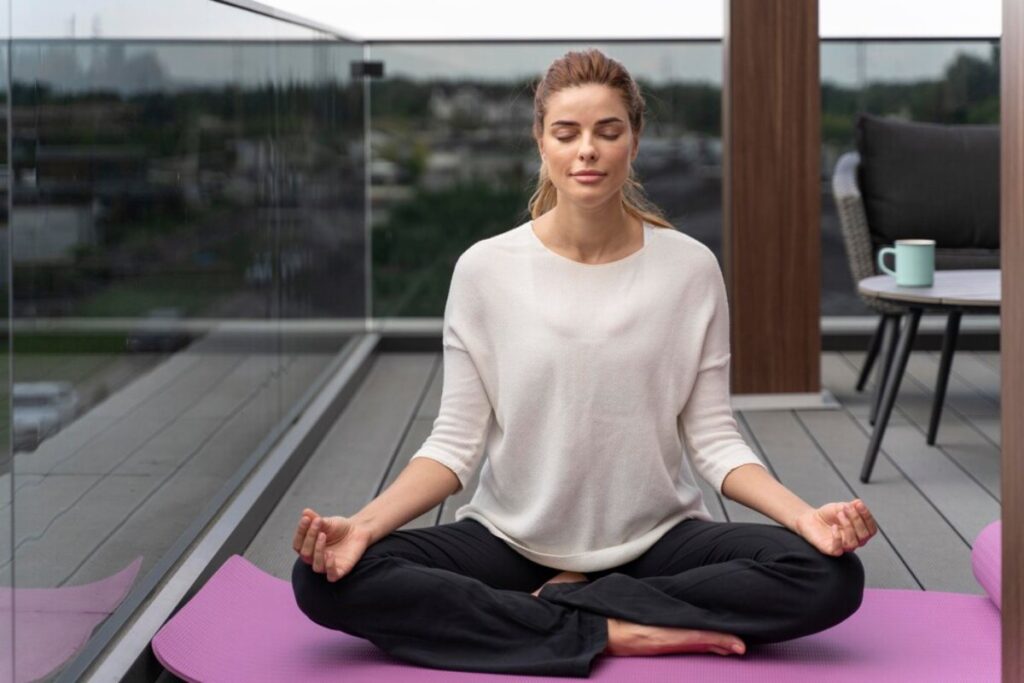The Personal Development Blog

Mindfulness Practices to Enhance Concentration
There are pings, pop-ups, exploding to-do lists and now, more than ever, the ability to maintain mental clarity is a major hurdle of the times we live in. If you find it difficult to concentrate when at work, forget what you study, or cannot complete tasks without getting distracted, then you must sharpen your mind. Luckily, ancient wisdom contains a modern solution: mindfulness.
Mindfulness is more than a buzzword; it’s a scientifically proven method for improving brainpower, emotional regulation, and attentional skills. Many people practice mindfulness to help them stay in the present. It lets them refocus wandering thoughts and feel calmer and clearer.
This article looks at the best mindfulness practices to boost your focus and productivity. These techniques can help you unlock your full mental potential—one breath at a time.
What Is Mindfulness?
Mindfulness means fully focusing on the present moment. It involves acceptance and avoids judgment. It’s about being aware of your thoughts, feelings, and surroundings. Don’t just go on autopilot.
Core Elements of Mindfulness:
- Present awareness: Observing the here and now, rather than dwelling on the past or future.
- Non-judgement: Letting go of labels or evaluations of your thoughts.
- Intention: Practising on purpose, with conscious effort.
Regular mindfulness practice boosts the brain’s focus on tasks. It helps with short-term attention and supports long-term cognitive health.
How Mindfulness Improves Concentration and Productivity
Research shows that mindfulness helps the brain focus better, improve memory, and manage emotions. These are all important for being productive.
Proven Benefits Include:
- Reduced mind-wandering
- Enhanced working memory and information retention
- Greater resilience to stress
- Improved decision-making
- Fewer distractions and mental fatigue
Practising mindfulness is like training your brain. It helps you build focus and strength when it matters most.

Mindfulness Exercises for Focus Improvement
Let’s explore the most effective mindfulness exercises that directly support focus improvement and work performance.
1. Breath Awareness Meditation
Perhaps the most foundational of all mindfulness practices, breath awareness teaches you to anchor your attention to your breathing—a constant, calming rhythm that helps centre your mind.
How to Practise:
- Sit comfortably and close your eyes.
- Inhale through your nose, feeling the air move into your body.
- Exhale slowly and fully.
- Focus solely on the sensation of breathing.
- When your mind wanders, gently return to your breath.
Duration: Start with 5 minutes, gradually increasing to 15–20.
Why It Works: Breath awareness reduces rumination and activates the parasympathetic nervous system, calming the mind and sharpening focus.
2. The 5-4-3-2-1 Grounding Technique
This exercise engages all five senses to bring your awareness into the present moment.
Steps:
- 5 things you can see
- 4 things you can touch
- 3 things you can hear
- 2 things you can smell
- 1 thing you can taste
When to Use It: During moments of overwhelm, distraction, or stress.
Productivity tip: Use this technique before a meeting or deep work session to reset your mental state.
3. Mindful Walking
Mindfulness isn’t confined to meditation cushions. Walking mindfully turns a routine activity into a practice of intentional presence.
How to Practise:
- Walk slowly and silently, preferably in nature.
- Pay attention to the sensation of your feet touching the ground.
- Notice the rhythm of your steps, your breathing, and your surroundings.
- Avoid listening to music or checking your phone.
Duration: 5–10 minutes during a break or between tasks.
Why It Helps: Physical movement combined with focused awareness boosts mental energy and refreshes attention span.
4. Single-Tasking with Mindfulness
Multitasking is a myth that drains productivity. Single-tasking, or doing one thing at a time with full attention, increases both efficiency and quality.
How to Practise:
- Choose one task (e.g., replying to emails).
- Set a timer for 25 minutes (Pomodoro-style).
- Focus only on that task, noticing urges to check your phone or switch windows.
- Gently refocus each time your mind wanders.
Mindfulness hack: Say in your mind, “This is what I’m doing now,” to anchor your focus.
5. Mindful Listening
Effective listening enhances communication and fosters stronger relationships—especially in the workplace.
How to Practise:
- When someone is speaking, give them your full attention.
- Avoid rehearsing your reply or judging their words.
- Use non-verbal cues like nodding or eye contact to stay engaged.
- Reflect back what you’ve heard before responding.
Application: Practise mindful listening in meetings or one-on-ones to increase presence and empathy.

6. Mindfulness Journaling
Journaling allows you to observe and process your thoughts, increasing self-awareness and emotional clarity.
Prompts to Try:
- “What thoughts are distracting me today?”
- “How did I respond to stress today?”
- “What am I grateful for right now?”
Routine tip: Dedicate 5 minutes at the start or end of your day for reflective writing.
Benefit: Clears mental clutter, reduces overthinking, and improves concentration.
Integrating Mindfulness into Your Daily Routine
Mindfulness doesn’t require hours of free time or a silent retreat. The real power lies in incorporating small moments of awareness into everyday life.
Quick Wins:
- Take 3 mindful breaths before answering a phone call.
- Practise mindful eating during lunch—no screens or multitasking.
- Do a 1-minute body scan during work breaks to check in with your physical state.
Workplace tip: Begin meetings with 30 seconds of silence to promote focus and presence.
Digital Tools for Mindful Productivity
Several apps and platforms can support your mindfulness journey and keep you consistent.
Recommended Apps:
- Headspace – Guided meditations and focus sessions
- Calm – Breathing exercises and sleep support
- Insight Timer – Free access to thousands of meditations
- Brain.fm – Music designed to improve focus through neuroscience
- Forest – Stay focused by planting a virtual tree that dies if you leave the app
Tip: Use tech to serve your mindfulness—not replace it.
Workplace Mindfulness: The Professional Edge
Practising mindfulness at work doesn’t just help you focus—it enhances emotional intelligence, stress management, and creative problem-solving.
Benefits for Professionals:
- Improved decision-making under pressure
- Better conflict resolution and collaboration
- Reduced burnout through emotional regulation
- Stronger leadership through self-awareness and empathy
Real-world example: Companies like Google, Intel, and SAP offer mindfulness programmes for employees to promote mental health and performance.
Staying Consistent: Making Mindfulness a Habit
Like any skill, mindfulness improves with regular practice. The key is consistency over intensity.
Tips for Long-Term Success:
- Attach mindfulness to existing habits (e.g., after brushing teeth).
- Start small—2 minutes daily is better than 20 minutes once a week.
- Track your progress with a calendar or app to build accountability.
- Be kind to yourself. Missing a day is not failure—it’s part of the process.
Mantra to Remember: Start where you are. Use what you have. Do what you can.
Train Your Focus, Change Your Life
In a world full of distractions, focus is a superpower. Mindfulness is the tool that helps you gain it. Mindfulness exercises can help anyone. No matter if you’re a pro aiming for more productivity, a student seeking clarity, or someone with a hectic life, these practices offer an easy way to boost focus and strengthen your mind.
Take action today: Pick one mindfulness technique from this list. Then, promise to practise it every day for the next week. Small, intentional moments of presence will add up to big results—in work, in life, and within yourself.









